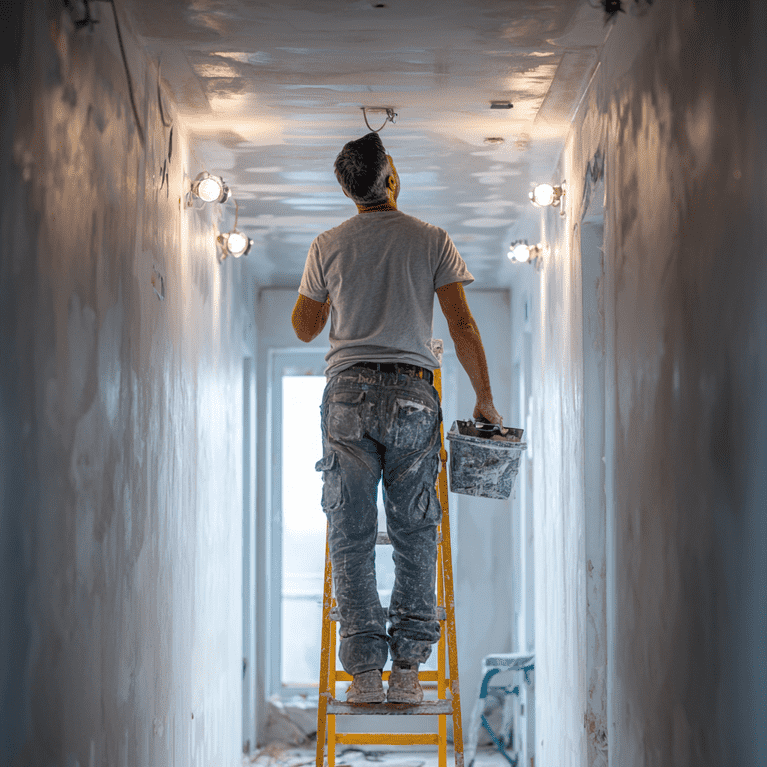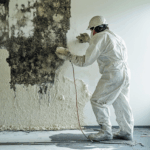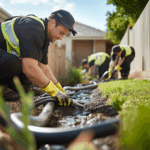Maintaining your property in South Brisbane is essential to ensure its longevity, safety, and value. The region’s subtropical climate, characterized by hot, humid summers and mild winters, presents unique challenges for property owners. Implementing a proactive maintenance plan tailored to these conditions can prevent costly repairs and ensure compliance with local regulations. Here’s a comprehensive guide to essential building maintenance tips for both commercial and residential properties in South Brisbane.
Seasonal Maintenance Tasks
Summer (December to February):
- Air Conditioning Maintenance: Ensure your air conditioning systems are serviced before the peak summer months. Clean or replace filters to maintain efficiency and indoor air quality.
- Pest Control: The humid climate can attract pests. Regular inspections and treatments can prevent infestations.
Autumn (March to May):
- Roof and Gutter Inspection: Check for debris accumulation in gutters and any damage to the roof that may have occurred during summer storms. Clean gutters to prevent water damage.
- Tree Pruning: Trim overhanging branches to reduce the risk of damage during winter winds and to maintain property safety.
Winter (June to August):
- Insulation Check: Inspect and upgrade insulation to maintain indoor warmth and energy efficiency.
- Heating System Service: Have heating systems inspected and serviced to ensure optimal performance during cooler months.
Spring (September to November):
- Exterior Cleaning: Pressure wash building exteriors to remove mould, mildew, and dirt buildup. This not only enhances appearance but also prevents structural damage.
- Repainting: Address any peeling or faded paint to protect surfaces from the upcoming summer heat and humidity.
Common Issues in Commercial and Residential Properties
- Mould and Mildew: The high humidity in Brisbane can lead to mould growth, which poses health risks and can damage structures. Regular inspections and prompt remediation are crucial.
- Water Damage: Heavy rains can cause leaks and water intrusion. Ensure that roofs, windows, and doors are properly sealed and that drainage systems are functioning correctly.
- Structural Wear and Tear: Over time, buildings may develop cracks, deteriorated materials, or other structural issues. Regular inspections can identify and address these problems early.
Proactive Strategies to Prevent Costly Repairs
- Regular Inspections: Schedule routine inspections of all building components, including plumbing, electrical systems, and structural elements. Early detection of issues can prevent more extensive and expensive repairs.
- Compliance with Local Regulations: Stay informed about Brisbane’s building codes and maintenance regulations to ensure your property meets all legal requirements. Non-compliance can result in fines and increased liability.
business.qld.gov.au - Energy Efficiency Upgrades: Invest in energy-efficient appliances, lighting, and insulation. This not only reduces utility costs but also enhances property value and sustainability.
- Emergency Preparedness: Develop and maintain an emergency plan to address natural disasters, such as floods or storms, which are pertinent to Brisbane’s climate. Ensure that structures are reinforced to withstand such events.
Practical Advice Tailored to Brisbane’s Climate and Local Regulations
- Ventilation: Ensure adequate ventilation throughout the property to mitigate humidity levels and prevent mould growth.
- Material Selection: Use building materials resistant to moisture and heat to withstand Brisbane’s climate conditions.
- Noise Compliance: Be mindful of local noise regulations when performing maintenance tasks, especially during early mornings or late evenings.
brisbane.qld.gov.au - Professional Assistance: Engage local professionals familiar with Brisbane’s specific building challenges for inspections and repairs. Their expertise ensures that maintenance practices are both effective and compliant with regional standards.
By implementing these maintenance strategies, property owners in South Brisbane can effectively preserve their investments, ensure safety, and comply with local regulations, all while adapting to the unique climatic challenges of the region.





